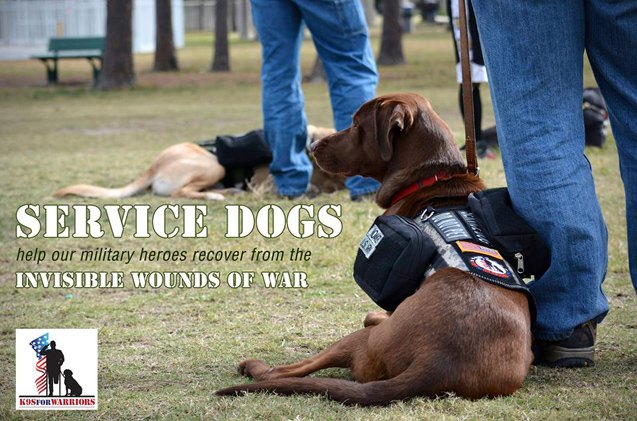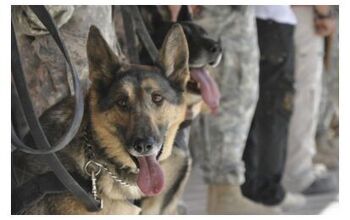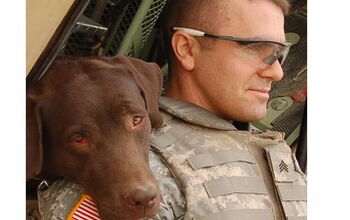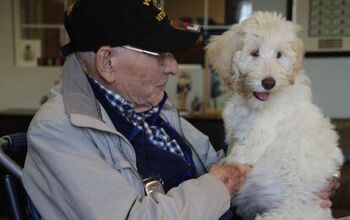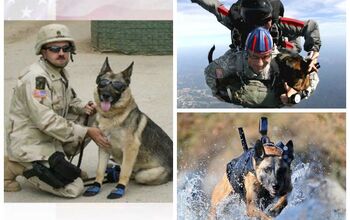HABRI Grants $42,000 To Study Effects Of Service Dogs On War Veterans

Our canine companions are taking their place on the front lines to help post 9-11 war veterans combat Post Traumatic Stress Disorder (PTSD) and Traumatic Brain Injury (TBI). And who better than man’s best friend to help our dedicated soldiers overcome these common and crippling conditions? Their loyalty, patience, and calming nature makes pooches the ideal candidates in supporting people with physical disabilities, and promoting mental wellbeing, healthy aging and child development. But while the benefits of service dogs are widely recognized, they are yet to be scientifically and medically proven when it comes to war veterans suffering from PTSD and TBI. Here’s where the Human Animal Bond Research Initiative (HABRI) comes in.
Related: Paws For Veterans Trains Rescue Dogs To Help Heroes With PTSD
The Science of the Human-Animal Bond
HABRI, a non-profit organization dedicated to funding, studying and sharing animal impacts on human health, has just announced a $42,000 grant to Purdue University to monitor the effects that dogs have on vets suffering from PTSD and TBI. Approximately one in five post 9-11 war veterans are affected by these debilitating mental disorders, which can result in flashbacks, nightmares, severe anxiety, and uncontrollable thoughts that don’t go away (source: U.S. Department of Veterans Affairs). In coordination with the K9s For Warriors program – a non-profit that trains and pairs service dogs with soldiers-turned-civilians at no cost – Purdue researchers will monitor participants’ health and wellness, and the progress of their treatment with the benefit of dogs compared to that without.
Related: Dogs Help People Who Have Seen Too Much [Video]
Hypothesis: Dogs Rule
The clinical study will look at the furry-friend factor when it comes to patients’ medical, physiological, and self-perception indicators. The anticipated outcome? Dogs rule and thus, will come out head and tails above of the dog-free treatment options, many of which are shown to have limited success and high drop-out rates. And K9s For Warriors is proof of success – their dogs are mitigate the symptoms of PTSD to help vets return to civilian life and gain independence.
It’s important to note that service dogs aren’t intended to replace any existing therapies, which include cognitive behavioral therapy and medications, but rather to enhance them. And let’s face it – dogs really do make everything better, don’t they?
If you want to donate and help solders get a new “leash” on life, please visit K9s For Warriors website.

More by Lydia McNutt



